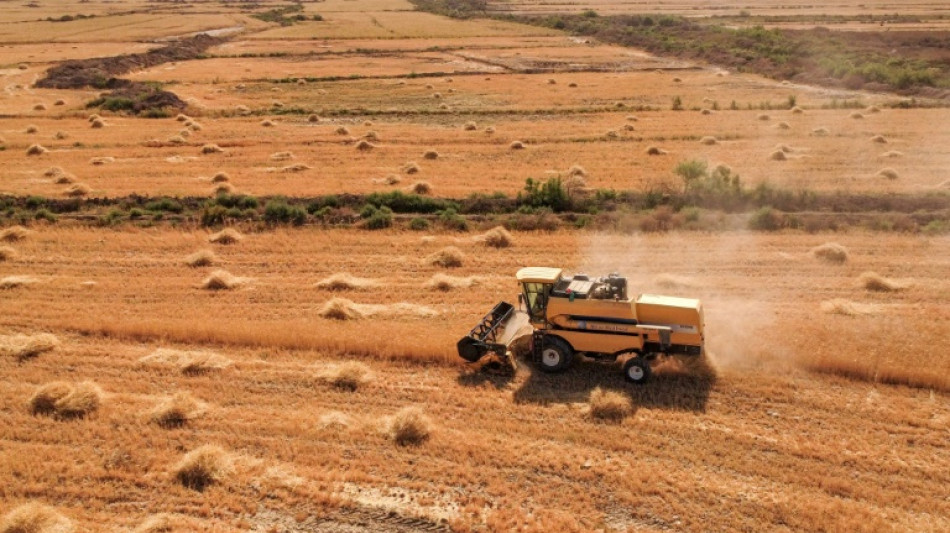
-
 Shubman Gill: Young 'Prince' leading India's post-Rohit, Kohli era
Shubman Gill: Young 'Prince' leading India's post-Rohit, Kohli era
-
Suriname poised for cash inflow from newly discovered oil
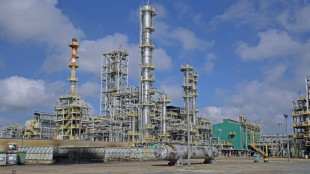
-
 India name Shubman Gill as new Test captain
India name Shubman Gill as new Test captain
-
Russia strikes Kyiv after first stage of major prisoner swap
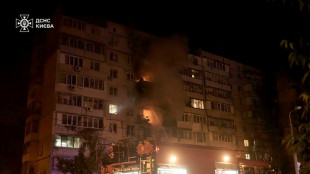
-
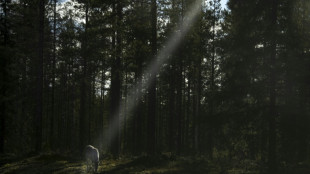 Growing Arctic military presence worries Finland's reindeer herders
Growing Arctic military presence worries Finland's reindeer herders
-
Venue dispute overshadows CAF Confederation Cup title decider

-
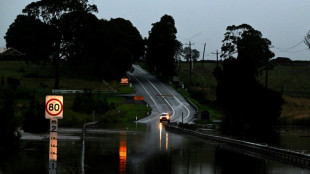 Thousands remain isolated as floods ease in eastern Australia
Thousands remain isolated as floods ease in eastern Australia
-
Rare wild cattle herded in Cambodia by helicopter
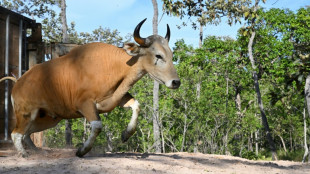
-
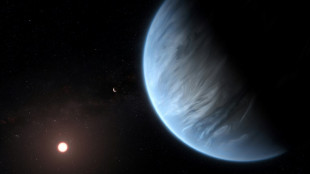 Doubt cast on claim of 'hints' of life on faraway planet
Doubt cast on claim of 'hints' of life on faraway planet
-
Japanese filmmaker Fukada casts queasy gaze on J-pop idols

-
 Tennis's 'Big Three' reign unlikely to be repeated: Moya
Tennis's 'Big Three' reign unlikely to be repeated: Moya
-
At Roland Garros, the 'other' clay specialists have their work cut out
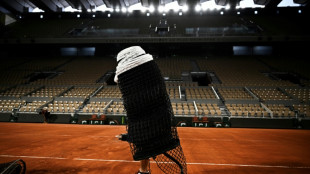
-
 Forest chase Champions League dream as Liverpool party
Forest chase Champions League dream as Liverpool party
-
Highlights from Cannes as film festival wraps up
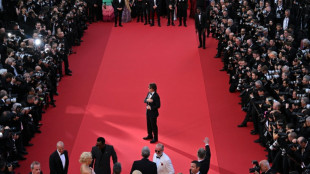
-
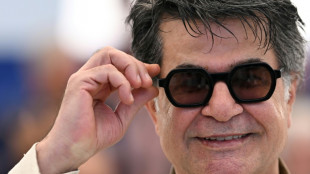 Cannes closes with Iranian, Ukrainian films tipped for glory
Cannes closes with Iranian, Ukrainian films tipped for glory
-
Bae grabs lead but Wang makes charge in Mexican heat

-
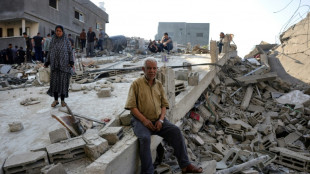 UN chief says Gaza war in 'cruelest phase' as aid trucks looted
UN chief says Gaza war in 'cruelest phase' as aid trucks looted
-
Winger Reece relishes Super Rugby try-scoring record

-
 Griffin and Schmid share lead at Colonial
Griffin and Schmid share lead at Colonial
-
Venezuela opposition leader arrested ahead of tense election
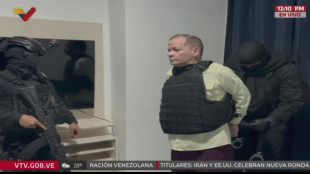
-
 US, Boeing reach deal to resolve MAX criminal case
US, Boeing reach deal to resolve MAX criminal case
-
Anthropic's Claude AI gets smarter -- and mischievious
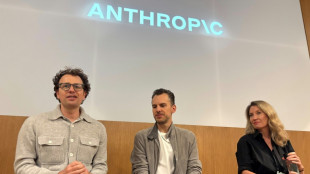
-
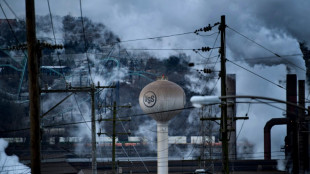 Trump greenlights Nippon Steel 'partnership' with US Steel
Trump greenlights Nippon Steel 'partnership' with US Steel
-
German woman arrested after 17 stabbed at Hamburg station

-
 Napoli back on top in Italy after sealing fourth Serie A crown
Napoli back on top in Italy after sealing fourth Serie A crown
-
'Intense' Bath stay on track for treble with Challenge Cup glory

-
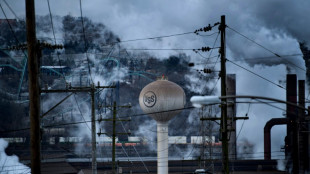 US Steel shares skyrocket after Trump greenlights Nippon 'partnership'
US Steel shares skyrocket after Trump greenlights Nippon 'partnership'
-
Napoli's key men in Serie A title triumph
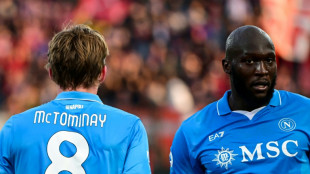
-
 Bath stay on track for treble with Challenge Cup glory
Bath stay on track for treble with Challenge Cup glory
-
Conte's Napoli future uncertain even after Serie A title glory
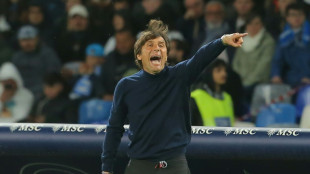
-
 McTominay steps out of United's shadow to become Napoli hero
McTominay steps out of United's shadow to become Napoli hero
-
Napoli claim fourth Serie A title as Inter fall short

-
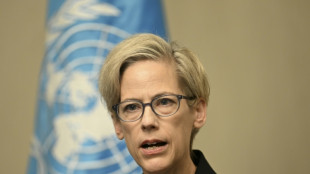 UN expert says Guatemalan anti-corruption fighters persecuted
UN expert says Guatemalan anti-corruption fighters persecuted
-
South Africa rescues all 260 miners stuck underground alive

-
 Zimbabwe hundred hero Bennett says Trent Bridge 'war cries' remind him of home
Zimbabwe hundred hero Bennett says Trent Bridge 'war cries' remind him of home
-
Bearman handed 10-place Monaco grid penalty

-
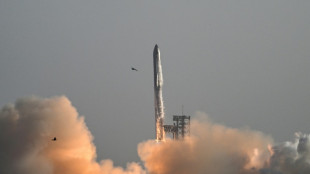 After two setbacks, SpaceX could try to launch massive Starship next week
After two setbacks, SpaceX could try to launch massive Starship next week
-
Billy Joel cancels concert dates over brain condition

-
 Kardashian 'grateful' after Paris robbers convicted
Kardashian 'grateful' after Paris robbers convicted
-
Judge temporarily halts Trump block on foreign students at Harvard

-
 Trump fires new 50% tariff threat at EU, targets smartphones
Trump fires new 50% tariff threat at EU, targets smartphones
-
French-Brazilian photographer Sebastiao Salgado dies aged 81: French Academy of Fine Arts
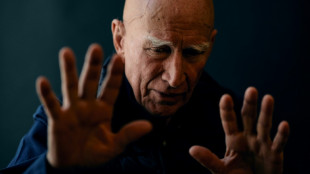
-
 Arsenal 'humble' but 'all-in' for women's Champions League final
Arsenal 'humble' but 'all-in' for women's Champions League final
-
UN expert calls for end of Gaza blockade in Cannes
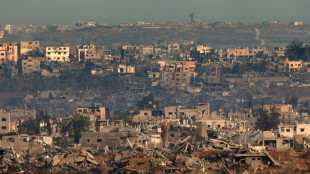
-
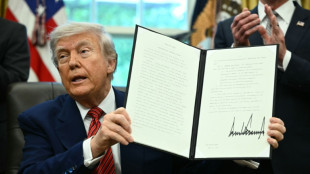 Trump signs orders to boost US nuclear energy
Trump signs orders to boost US nuclear energy
-
US power company to pay $82.5m for California wildfire
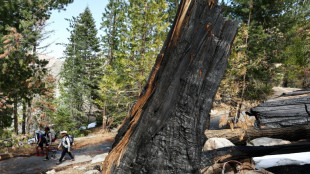
-
 Distrusting Argentines loath to bank their 'mattress dollars'
Distrusting Argentines loath to bank their 'mattress dollars'
-
Kishan shines as Hyderabad defeat Bengaluru

-
 79 miners rescued from S.African shaft, over 100 still underground
79 miners rescued from S.African shaft, over 100 still underground
-
Piastri surprised by Ferrari pace as Leclerc tops Monaco practice


Why record wheat prices are a global worry
Consumed daily by billions of people around the world in bread and other flour-based products, wheat is a basic food staple, making current record prices for the cereal a global concern.
Low rainfall or droughts in major producing countries were already causing worries before Russia's invasion of Ukraine in February sent markets soaring.
Since then, wheat-exporting powerhouse Ukraine has struggled to sell and sow its crops, putting consumers in poor countries at risk of poverty and even famine
Sebastien Abis, head of the Demeter agricultural think tank in Paris and an expert at the Institute for International and Strategic Relations, explains what's at stake:
- Is it possible to replace wheat with something else? -
"It's very difficult. Wheat is the most important cereal for global food security: it is eaten by billions of humans in the form of bread, flour or semolina.
"Corn is grown in larger quantities but is mostly used for animal feed or for industrial purposes.
"Beyond its nutritional qualities, wheat is a very social and democratic product, enabling people to make low-cost food -- and it is often subsidised."
"Yes, because of shortages and because you can't produce it just anywhere. You can grow it in temperate climates, but there are only a dozen countries that produce a lot and can export it, particularly Russia, Ukraine, the United States, Australia.
"In recent years, the United States has produced less and less because they are switching to corn and soya . After the Soviet period, the two countries that surged ahead were Ukraine and Russia.
"Ukraine accounted for 12-13 percent of global exports in recent years."
"We have at the same time a dreadful geopolitical situation, with multilateralism faltering, to which we must add worrying climatic events, with droughts in the southern Mediterranean basin, worries in the United States and in Europe.
"India, which had an exceptional harvest last year and reserves that enabled it to sell more on the markets, has been hit with a terrible drought and will not be able to export.
"Prices that were already high before the war are now exploding: wheat reached 440 euros ($463) a tonne on the Euronext market on Monday."
"India had announced a rather ambitious target of exporting 10 million tonnes. It had sold around 3-3.5 million tonnes before it put its export ban in place, so one of the questions is whether it will honour its commitments.
"The situation is tense because there's no country that can put more than usual into the export market. Perhaps Russia will if it has a good harvest.
"But even if the war stopped, Ukraine's production and exports will not bounce back immediately."
"We have real long-term risks. We still haven't seen all the shocks, because on global markets for the last two months we've been seeing fulfilments of contracts signed before the Russian invasion. We're now entering the hard part."
"For wheat, we have around 270 million tonnes for a planet that consumes around 800 million a year. Around half are in China which has one year's consumption in reserve. Excluding China, cereal stocks are at their lowest level in 25 years.
"We need international solidarity and cooperation. We can't leave countries to struggle on their own for food security but at the same time you can't be surprised that some countries are looking out for themselves first and foremost.
"We need to produce everywhere where we can produce, notably in Africa. But for that we need peace and security".
T.Ward--AMWN